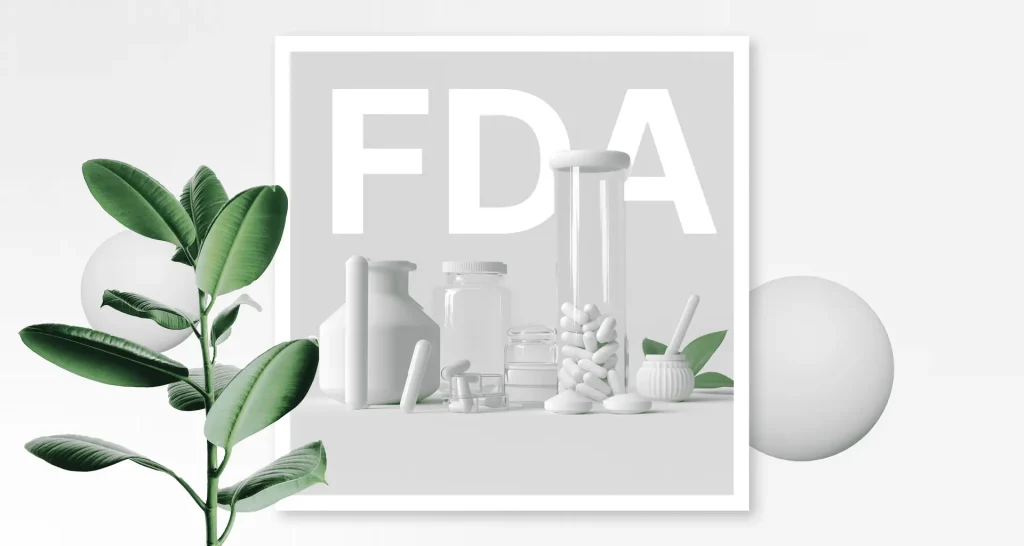The Food and Drug Administration (FDA) plays a central role in the U.S. healthcare system, overseeing a wide range of products, from food to medical devices. This regulation serves to protect public health and safety. This article gives an insight into the tasks of the FDA and explains later in the article the importance of digital signatures in FDA-compliant companies.
What is the FDA?
As part of the U.S. Department of Health and Human Services , the FDA was established to guarantee the safety and efficacy of foods, medicines, and other products. The FDA actively regulates the market to protect consumers from health risks by setting standards, conducting inspections, regulating the marketing of these products, and being instrumental in the evaluation and approval of new products. It also inspects production facilities and enforces food and drug safety laws. Its comprehensive guidelines and standards form the basis of consumer protection.
Responsibilities of the FDA
The FDA’s range of tasks is wide-ranging and ranges from the preventive monitoring of food safety to the evaluation of drugs and medical devices. It works closely with manufacturers, researchers and other authorities to ensure consumer safety. Their responsibilities include approving clinical trials and monitoring manufacturing practices to ensure consistent product quality. The integration of digital technologies, such as the implementation of digital signatures, helps to make regulatory processes more efficient and to ensure the integrity of data.
Industries under FDA supervision
Under FDA regulation are several key industries that have a direct impact on health and safety:
- Food industry: Monitoring the safety and quality of food, beverages and dietary supplements.
- Pharmaceutical industry: Regulating the development, manufacturing, and marketing of prescription and over-the-counter drugs.
- Medical devices: Monitoring of medical devices and equipment, from simple instruments to complex diagnostic devices.
- Biotechnology and biopharmaceuticals: Regulation of biopharmaceuticals, biological products and genetically modified organisms.
- Cosmetics industry: Monitoring the safety and labelling of cosmetics.
- Veterinary medicines and feed: Regulation of medicines and feed for animals, including pets and farm animals.
- Tobacco products: Regulation of the marketing and sale of tobacco products.
- Blood products and other biological products: Monitoring of blood banks and transfusions.
The Importance of Electronic Signature in FDA-Compliant Industries
In today’s regulated industries, electronic signatures are essential to ensure compliance and traceability. The FDA requirements, specifically under 21 CFR part 11, define the standards for electronic signatures to ensure the reliability and security of the data. It should be noted that the eIDAS Regulation regulates electronic signatures throughout Europe. In FDA-regulated industries, however, the FDA applies, which weighs heavier. These digital signatures play an essential role by providing the highest level of security, compliance and flexibility with regard to relevant documents, for example during product development and the manufacturing process. In this way, the strict requirements of the FDA can be met.
What are FDA-compliant digital signatures?
FDA-compliant electronic signatures must comply with the guidelines set out in the FDA regulations in Part 21 CFR Part 11 . These requirements ensure the authenticity and confidentiality of electronically signed documents and contribute significantly to FDA compliance. The key elements include:
The content of a digital signature must:
- Name of the signatory,
- Date and time of signature and
- contain the meaning of the signature (e.g. approval, verification).
Security:
- Anti-counterfeiting: Ensures that the signature cannot be tampered with.
- Connection to Document: Ensures that the signature is associated exclusively with the signed document.
- Uniqueness and Identification Procedures: Ensures that each signature can be uniquely assigned to a person and verified using biometric or non-biometric methods (identification code and password).
FDA Identification Code and Password Requirements
The security requirements and management of authentication data are specified in paragraphs 11.200 (a) and 11.300 and are crucial for the handling of sensitive data. Companies must follow the following guidelines:
Authentication data management by:
- Four-eyes principle: The allocation must be regulated in such a way that an abusive attempt to use a third-party signature would require at least two people.
- Unique combinations: The double assignment of identification codes (e.g. user name, abbreviation or number) and passwords must be excluded.
- Regular updating: It is important to ensure that codes and passwords are continuously checked for security.
Loss management and general protective measures:
- For the loss of codes, passwords, cards, etc., there must be a procedure that enables “de-authorization”, for example.
- Appropriate measures must be taken to protect and detect unauthorized access attempts.
- The input/output devices, including cards that carry or read authorization information, must be checked regularly to ensure that they are working correctly.
Conclusion: Importance of FDA Compliance for Businesses
Compliance with FDA regulations is critical for businesses. By ensuring FDA compliance, companies can ensure that their products meet strict safety and quality standards. FDA-compliant products enjoy consumer trust and facilitate access to key markets, leading to improved competitive position and long-term success. In addition, adherence to FDA guidelines can help companies better position themselves in the global market, as many international standards are based on FDA standards. Especially in FDA-regulated industries, the digital signature plays a crucial role and is a core element of the process landscape, as it helps ensure the integrity and security of data and supports compliance with regulatory requirements.




